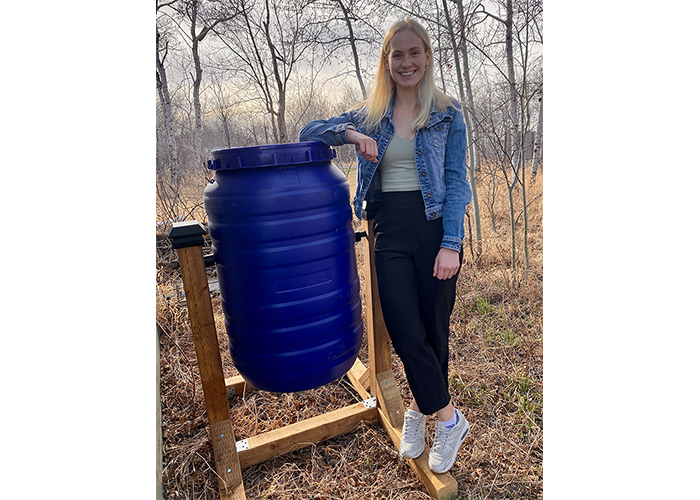
How a Pandemic Sparked a Passion for Planetary Health & Climate Change
I’ve always loved getting outdoors and have made conscious efforts to bring reusable bags to the grocery store. However, I was never one to try and practice minimalism or compost, and definitely not one to try and keep up with the news on climate change.
By Brooklyn RawlykAs I entered medicine, that quickly changed. While COVID-19 kept my class home for majority of our curricular hours (and most of my non-curricular hours), I started to notice things. The planetary health student group (PHSG) along with the Canadian medical student group, Health and Environment Adaptive Response Task Force (HEART), would share messages about sustainability, and more foreign to me, messages about climate change that I would only hear about on the news. HEART stressed both the importance of implementing planetary health and climate change education into medical curriculum and how climate change currently does and will continue to impact patients in the future.
As I took in these messages, I didn’t understand what climate change truly was. Out of the many places in the world largely affected by climate change, I felt pretty safe in my bubble — I don’t see black, smoky skies every day.
As my interest piqued, my desire to learn got the best of me. I started to immerse myself in the virtual world that COVID created, where new online learning opportunities popped up like social media ads. I started attending planetary health conferences for physicians and took part in a certificate program put on by the Centre for Sustainable Health Systems in Toronto.
The program featured speakers such as Dr. Andrea MacNeill, a surgeon who is researching and implementing practices to mitigate the carbon footprint of the operating room and founded a planetary healthcare lab, and anesthesiologist Dr. Ali Abbass, who revealed that the carbon footprint of a single anesthetic gas (desflurane) is almost equivalent to driving across the country in a Honda Civic.
Family physician Dr. Kimberly Wintemute shared that a meter dose (common asthma) inhaler is equivalent to driving to Regina, which was both eye-opening and disappointing. Even more astounding, Dr. Brad Sullivan spoke at one of the Canadian Association of Physicians for the Environment (CAPE) SK chapter meetings about not only the broader issues at hand, but also to where our province stands- as the highest carbon emitter per capita in Canada.
As I continued to learn, it quickly became apparent why it is critical to implement climate change and planetary health into current medical curriculum and why action needs to be taken urgently. Literature frequently states climate change as the greatest global health threat of the 21st century and that not one child born today will live unaffected.
COVID-19 sparked a passion and sense of urgency within me that I will carry throughout my education and future years of practice. On a brighter note, working with an interdisciplinary health care student group, Emerging Leaders for Environmental Sustainability in Healthcare (ELESH), we successfully launched a trainee webinar to learn about Nature Prescription that was founded by Dr. Melissa Lem in BC. This is an initiative CAPE SK is hoping to launch locally. Also, within our college, the SMSS Global Health Committee and PHSG just finished hosting a successful earth week which brought forward a great deal of positive student energy, eager to make our province healthier and our healthcare system more sustainable.
Though I’m excited to share that I have personally started my own compost and have become a proud plant owner, my eyes have been opened to move beyond meso level targets and to set priority on macro level initiatives that are truly needed to make the greatest impact.
I am excited to see how medical students and Saskatchewan physicians can come together to be advocates for clean energy in our province, for Nature Prescription and other initiatives to be adopted, and for steps to be taken to create a sustainable health care environment.
Brooklyn is a first-year medical student at the College of Medicine and the SMSS Environmental Sustainability Representative.
